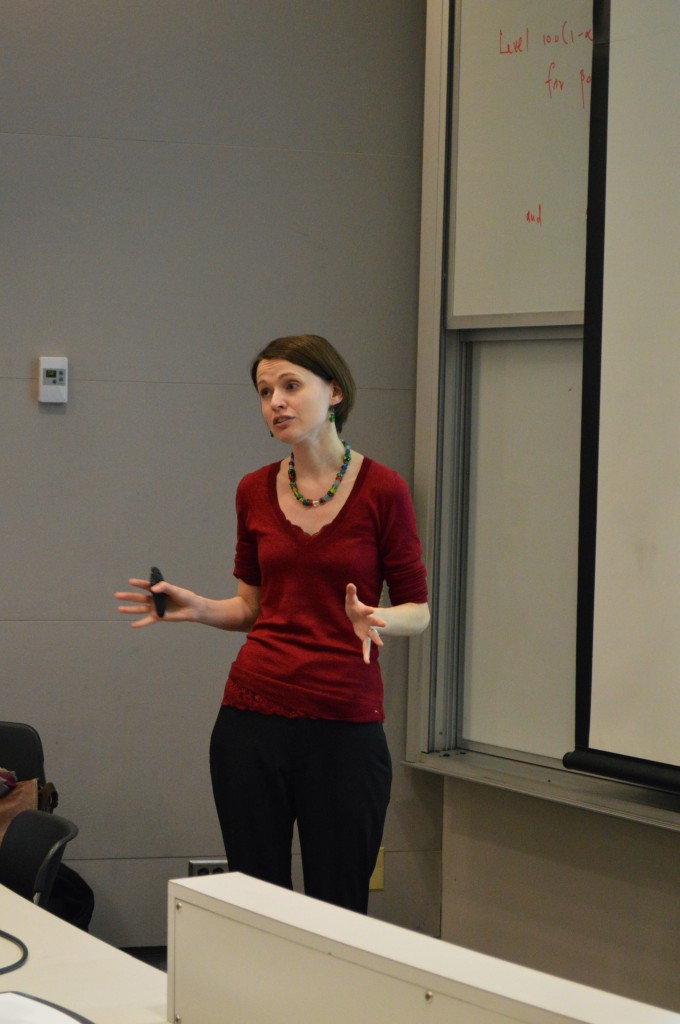
Drinking in a social context is more complex than the average student headed Downtown on a Friday night may think.
As part of her application process to become a research professor, Catharine Fairbairn, who received her Ph.D. from the University of Pittsburgh, gave a talk on Monday evening on alcohol’s rewards in social contexts.
Fairbairn discussed the implications of alcohol abuse, such as the way it impacts relationships and the rate of people who end up with an alcohol use disorder (AUD). According to Fairbairn, if one member of a relationship is an alcoholic the chance of a breakup is eight times higher. She discussed her study, which dealt with social drinking and measured drinkers’ facial expressions and moods.
“In their everyday drinking lives people overwhelmingly consume alcohol in the company of others,” Fairbairn said. “If we can get at some of these emotional rewards people get from alcohol, then we can ultimately go a long way to understanding and reforming better prevention measures.”
Fairbairn showcased video and audio samples of her studies, as well as discussions about what alcohol does to the user and how the characteristics of the user, such as personality and gender, can influence their usage. According to her, men are more likely than women to get AUD and one in four people in the United States will develop an alcohol problem.
She ended her talk with a summary of her plans for future research, such as studying the relationship between neuroticism and social anxiety. Faculty and students then asked questions pertaining to her study and results.
The purpose of the talk was to bring in a researcher from a different institution to learn about their respective research. Matthew Johnson, a professor in Binghamton University’s psychology department, said that in addition to this it was an opportunity for students to learn more about what they are studying.
“Undergraduate students get an opportunity to learn about cutting edge research and how it is created,” Johnson said. “This brings to life what they read about in textbooks.”
Lindsey Collins, a first-year graduate student studying clinical psychology, attended the talk and said the speaker impressed her. She said that it was beneficial for students to hear from sources outside of Binghamton University.
“She gave a lot of information about the research that has been done up to this point and her contributions,” Collins said. “It gives us information about the greater community of researchers and the greater body of work that is being done.”
Mike Fager, a senior majoring in integrative neuroscience, attended the talk in order to learn more about a topic he had only read about in the past.
“For undergraduate students it’s important for us to have these types of talks,” Fager said. “Coming to these talks really captures what their future could be like, it’s another way to learn than reading a paper.”
Fairbairn said she was happy to see students at the event and that she hopes that they will get excited about psychology in general. But she added that it is important everyone understand the dangers of alcohol.
“Alcohol problems are so pervasive and so harmful,” Fairbairn said. “I’m not here to preach to anybody, but just because you are doing it with other people, it doesn’t necessarily mean that ultimately that can’t become a problem.”


